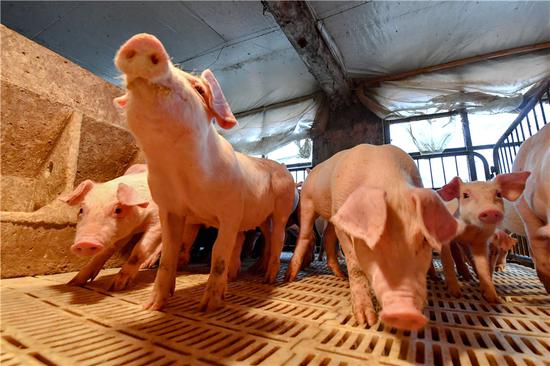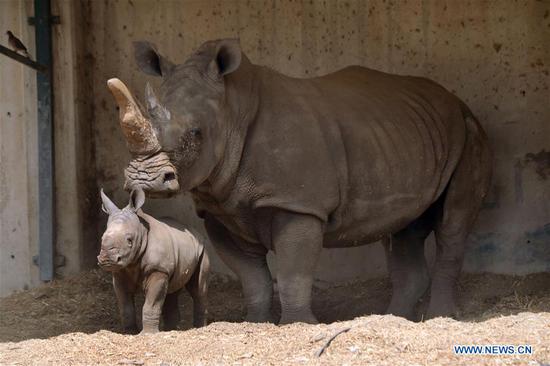
Piglets are held in pens at a modern pig farm in Beijing on April 30. (Photo by Wu Bo/For China Daily)
A new outbreak of African swine fever was detected in the Inner Mongolia autonomous region on Saturday, the Ministry of Agriculture and Rural Affairs said on Monday.
Fourteen hogs were found to be infected by the disease, eight of which died in Zhenglan Banner, Xilin Gol League, according to the announcement, citing a report from the China Animal Disease Control Center.
The latest case was the second in the region. Inner Mongolia and six other provinces have reported a total of 18 cases since Aug 1.
The ministry said local authorities have initiated an emergency response to block, cull and disinfect the affected pigs.
African swine fever is a highly contagious, viral disease that affects hogs. It cannot be transmitted to humans or other species of animals, according to experts from the ministry.
China reported its first case of the swine fever in early August in Liaoning province. Later outbreaks were reported in other provinces.
Among the reported cases, eight occurred in East China's Anhui province, putting the local authorities on high alert.
The provincial government has launched its highest emergency response for outbreaks, according to local media on Monday.
Pig farmers said they have taken many measures to prevent the disease, not only for their own interest but as a response to government requirements.
"We have banned all vehicles that are not owned by our company from entering our farms, and all of our own vehicles have to be disinfected before entering the area," said Zhou Pei, an executive with Xiandai Fine Breed Cultivation Co, based in Anqing, Anhui province.
Her company now has more than 20,000 black pigs, which are believed to be more resistant to the disease.
Vehicles used to transport feed to various farms are barred from Zhou's farm. Other interactions, including visitors, ceased in August.
Although Zhou's farms are safe from the disease, the company has been hurt by it, as pork prices have been declining over worries from consumers, she said.




















































